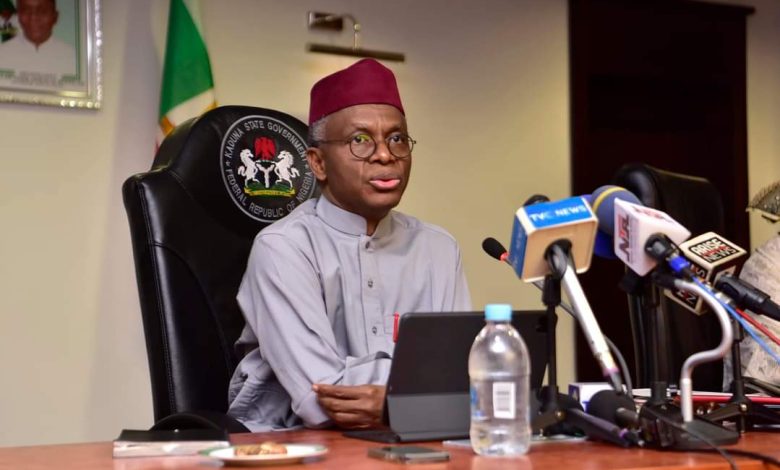
A coalition of Gbagyi stakeholders in Kaduna has criticised former governor Nasir El-Rufai over what it described as self-serving attacks on President Bola Tinubu.
Speaking at a press conference in Kaduna, Benjamin George, the group’s leader, said El-Rufai’s recent criticism of the Tinubu administration is rooted in personal disappointment rather than any genuine concern for national development.
“We discovered that since former governor Nasir El-Rufai lost out on a ministerial slot in President Tinubu’s cabinet, he has remained inconsolable—launching repeated verbal assaults on the administration,” George said.
He accused El-Rufai of marginalising the Gbagyi people during his time as governor by demolishing homes without compensation, denying them political appointments, and excluding them from key development projects.
George also said the former governor ordered the demolition of market stalls, failed to address the growing insecurity in the state, and trampled on the rights of citizens, including journalists.
He warned that El-Rufai’s alleged efforts to form a political coalition to challenge Tinubu in 2027 were a thinly veiled act of revenge.
“It is very clear that his current move to mobilise politicians he had despised in the past to unseat President Tinubu in 2027, as a revenge for losing a ministerial position, is dead on arrival,” he said.
George pledged the group’s support for Tinubu and Governor Uba Sani, noting that both leaders are working to resolve challenges inherited from past administrations.
“To this end, we have decided not to keep quiet and to tell the world categorically that the Gbagyi nation and the Middle Belt will never be part of any coalition orchestrated by Malam Nasir El-Rufai and his cohorts against President Tinubu,” he said.
He urged Nigerians to disregard what he called El-Rufai’s “utopian postulations and selfish machinations”, and expressed confidence that the current administration will succeed.
The coalition also accused El-Rufai of running an autocratic government for eight years, alleging that he marginalised Southern Kaduna communities, particularly the Gbagyi and Christian populations.
